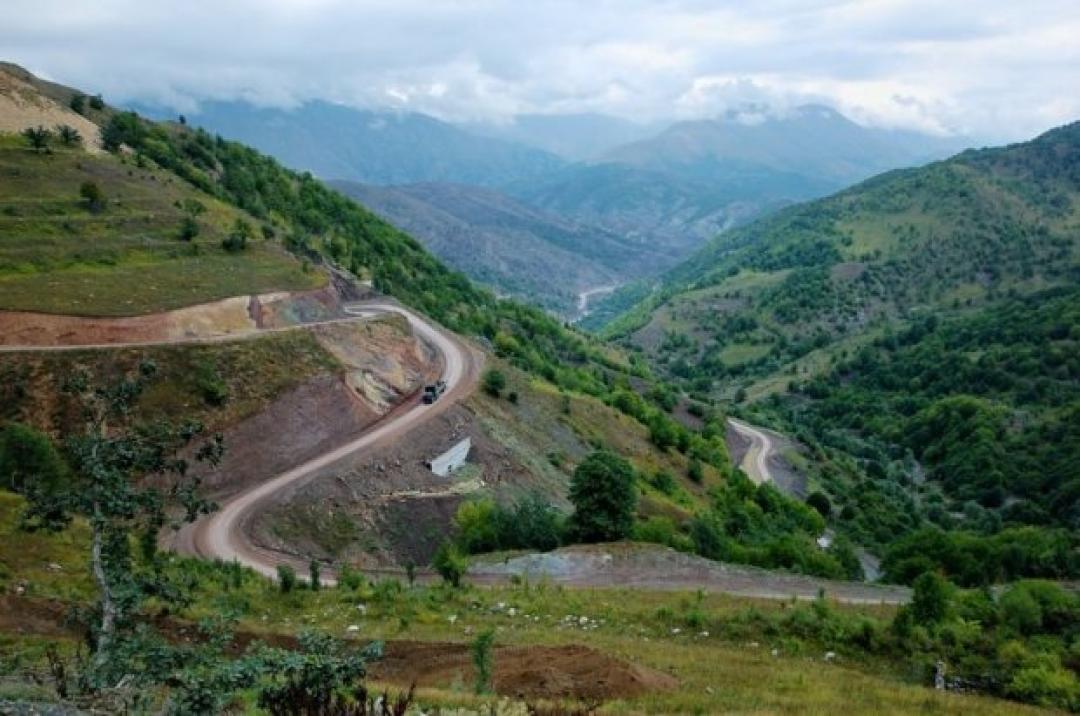
Nagorno-Karabakh: latest developments

On 9 December, the Armenian Foreign Minister Ara Ayvazyan met with his French counterpart Jean-Yves Le Drian to discuss the issue of Nagorno-Karabakh.
Ayvazyan stated that the discussion covered the humanitarian problems created after the war, the further course of the peace negotiation process and steps towards regional stability and security. They also spoke about the protection of centuries-old Armenian cultural heritage that are now under the control of Azerbaijani troops.
Noting that at the meeting the long-term settlement of the Nagorno-Karabakh issue was discussed in detail, Ayvazyan said that he presented Armenia's concern, including the issues of safe and dignified return of the Armenian population of Karabakh to their places of residence, which they left during the war, and the immediate exchange of the captured bodies of the dead.
Ayvazyan also emphasised that the right to self-determination was one of the key points of the negotiation process on Karabakh, and that it was impossible to exclude it from the agenda. Answering the question of how he sees the realisation of the right of the Karabakh people to self-determination, taking into account that this question is the only one of the Madrid principles that has not yet been resolved, he said that Azerbaijan and Turkey, having launched a military aggression against the self-determination of Nagorno-Karabakh, violated their international obligations. He stated that Azerbaijan also violated its obligations regarding the peace negotiation process. According to the Armenian foreign minister, from 27 September to this day [9 December 2020], a new watershed of perception has occurred in the international community, since the international community has realised that the Nagorno-Karabakh problem is not a purely territorial dispute.
Le Drian reiterated his country’s calls for the withdrawal of “all Syrian mercenaries” from the Nagorno-Karabakh conflict zone. He also said that France would remain actively engaged in international efforts to kick-start Armenian-Azerbaijani peace talks following the Russian-brokered ceasefire that stopped the recent war in Karabakh. “A ceasefire is not an accord, it’s the end of a war. We think that we need a lasting solution to this conflict, notably on the questions relating to the future status of Nagorno-Karabakh, its administrative border delimitations, mode of governance. Under the auspices of the co-presidency of the OSCE Minsk Group, France will assume all its responsibilities to achieve that and stand with Armenia in order to accompany it on this trajectory,” he stated.
An interesting statement was given by the chair of the commission on Armenia's defence and national security, Andranik Kocharyan, in relation to Armenian-Azerbaijani relations. “We lost both on the battlefield, both morally and psychologically. It is necessary to get out of this situation as soon as possible. It is necessary to try to start a dialogue with the winning side, however difficult it may be. The establishment of diplomatic relations with Azerbaijan may change the expected prospects,” he said.
The Azerbaijani authorities also held a number of diplomatic meetings, including talks with the Italian and Iranian diplomatic corps. The country’s President Ilham Aliyev received the Undersecretary of State for the Ministry of Foreign Affairs and International Cooperation of Italy Manlio Di Stefan. During the meeting, Aliyev emphasised that his government already started the process of reconstruction of Nagorno-Karabakh, adding that Azerbaijan would work with companies from “friendly” countries on that issue. “The first contracts were signed with Turkish companies. This is natural, because Turkey is our brotherly country. I hope that the next contracts will be signed with Italian companies, and that will be also natural, because Italy is a very close friend to Azerbaijan,“ he said.
Aliyev expressed his gratitude for Italy’s support during the war. “What people say, and I share their view, is that while some of your neighbours in parliament adopt strange resolutions recognising Nagorno-Karabakh, Italian parliamentarians come to Aghdam, come to Ganja, to demonstrate their respect to Azerbaijan, to demonstrate solidarity to the sufferings of Azerbaijani people. I am sure that there will be very positive outcomes of your visit and we will properly structure the agenda for the next 5-10 years of strong cooperation in all the areas,” Aliyev added.
The Azerbaijani Foreign Minister Jeyhun Bayramov met with the Iranian President Hassan Rouhani to discuss bilateral relations between the two countries, as well as Iran’s involvement in the reconstruction of Nagorno-Karabakh. Rouhani stated that Iran was ready to participate in the restoration of the Karabakh territories which are under the effective control of Azerbaijan. He also called for accelerating the implementation of previous projects between Iran and Azerbaijan, including the construction of the Rasht-Astara railway and the construction of the Khudaferin hydroelectric complex and power plants.
It was also reported that the OSCE Minsk Group co-chairs would conduct a visit to Armenia and Azerbaijan on 12-13 December.
See Also


Armenia Records 5.9% GDP Growth in 2024, Missing 7% Goal

Yerevan Balances Strategic Ties with Both US and Russia, Says Foreign Minister

FM Mirzoyan: Peace Deal with Azerbaijan Is Within Reach

Pashinyan and Erdogan Hold Call, Reaffirm Commitment to Ongoing Dialogue

